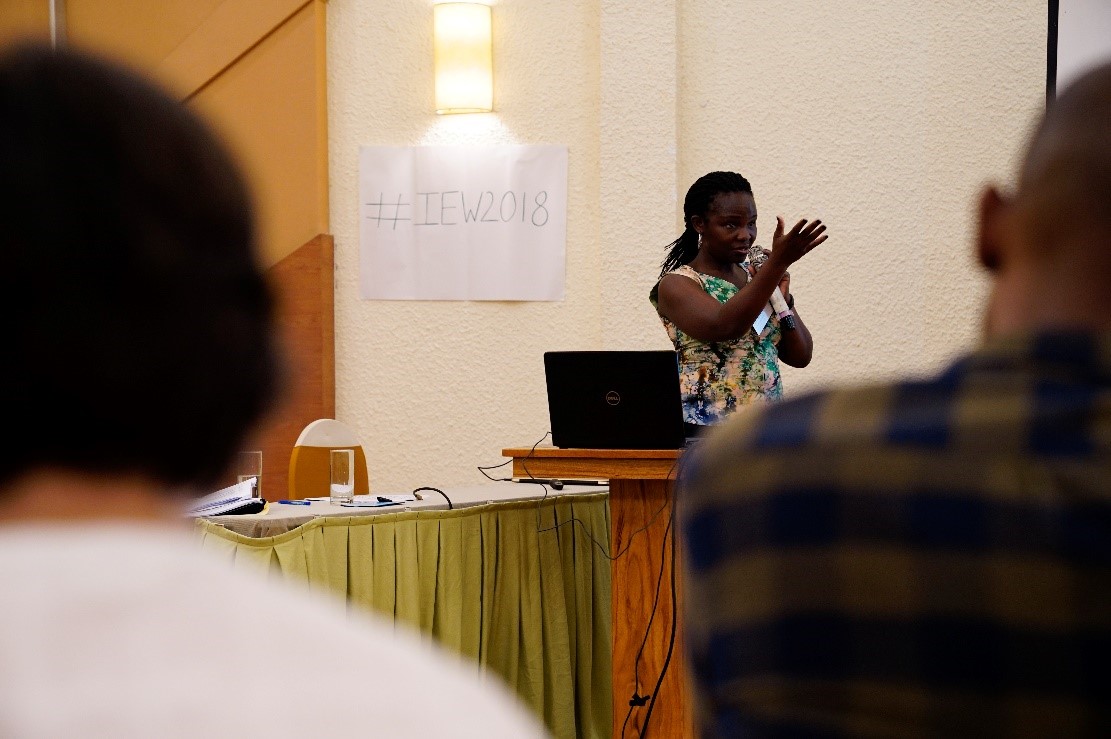At the 2018 Wellcome International Engagement Workshop, Lillian Mutengu, Community and Public Engagement Manager at the African Academy of Sciences (AAS) in Kenya discussed how to ensure researchers view engagement as a core part of their work. Lillian has over two decades’ experience in public and community engagement (CPE) with biomedical science and sexual-reproductive health, working in leadership roles to implement innovative engagement strategies in a number of settings, as well as contributing to national and global policy advocacy. Lillian was able to draw on her wealth of experience for workshop attendees and present methods for ensuring senior buy-in to engagement work, particularly from senior research leadership.

Image: Lillian giving her presentation at the workshop | Minh Tan
Lillian’s current role involves influencing senior research leadership, doctoral trainees and postdocs, and working with those implementing engagement. She discussed how to exercise CPE leadership to influence institutional policies and practices, making the following suggestions:
- Research Funders could make engagement a required aspect of research practice by:
- Including it in calls for proposals/grant applications;
- During review of proposals/grant applications, allocating a reviewer(s) to specifically review aspects on public engagement.
- The AAS has an established ‘Science Citizenship Policy’, which seeks to support scientists to serve the interests of their wider community. In practice, this means that researchers applying for grants to the AAS are required to provide their public engagement plans alongside their research proposals. Other funders could implement similar policies.
- It is important to support young and early career researchers to plan for, and implement CPE in their research projects. This will ensure they recognise the value of public engagement early on in their career. They can then act as public engagement ‘champions/advocates’ as they progress through their research field.
- CPE professionals should also act as leaders by developing strategic plans to guide implementation of engagement activities at their respective institutions. Strategic planning facilitates measuring of impact, and ultimately, making a strong case for public engagement based on evidence.
Download Lillian’s presentation slides here to see more.
---
The content on this page forms part of the online report for the 2018 International Engagement Workshop “Taking it to the Next Level: How can we generate leadership and develop practice in engagement?". To learn more about the workshop, access the rest of the report and browse the video presentations, discussion summaries, and tools, visit the workshop page.

This work is licensed under a Creative Commons Attribution 4.0 International License.

Please Sign in (or Register) to view further.